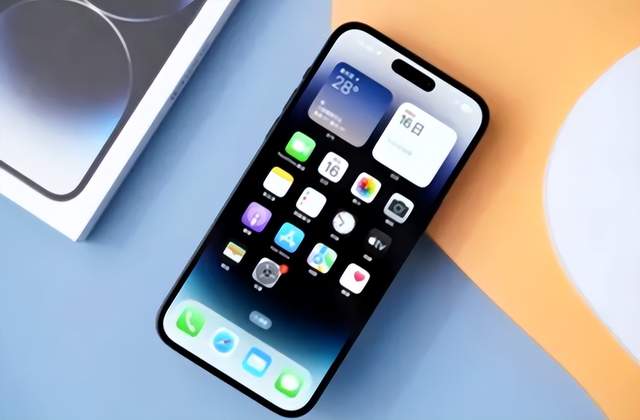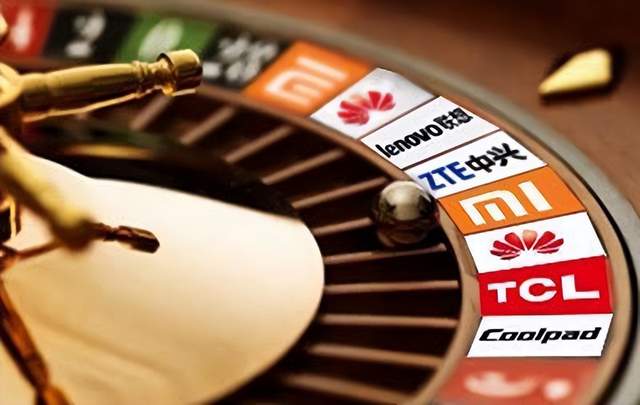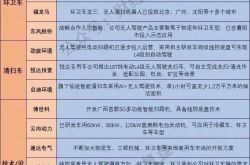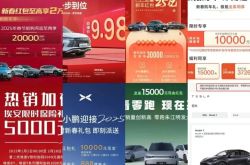Domestic mobile phones are shouting about challenging Apple, but they are all lowering prices for sale in action!
![]() 09/03 2024
09/03 2024
![]() 614
614
With the approach of the iPhone 16 launch event, domestic mobile phones have once again started shouting slogans about challenging Apple. However, compared to their verbal confidence, their actions have been to lower prices and sell off their products since late August. It seems that domestic mobile phones are not actually as confident as they claim in challenging Apple.

The situation faced by domestic mobile phones is actually of their own making. The 618 shopping festival is an important sales season every year. This year, Apple was the most proactive and offered the most discounts during the 618 festival, with the iPhone 15 being heavily discounted by up to 2,350 yuan, and the three iPhone 15 models ranking among the top three during the 618 festival.
In contrast, domestic mobile phones were passive in their response to the 618 festival this year, offering only meager discounts of a few hundred yuan. Most of the discounts were on previous-generation Snapdragon 8G2 phones. Domestic mobile phones were so stingy with their consumers that domestic consumers did not take kindly to them.
The best-selling mobile phones during the 618 festival showed that all domestic mobile phones in the top 10 were Snapdragon 8G2 models, and none of the latest Snapdragon 8G3 models made it into the top 10. It is clear that domestic consumers prefer to buy the iPhone 15 when shopping for phones priced above 3,000 yuan, especially when the lowest price of the iPhone 15 has fallen below 4,500 yuan.
In addition to abandoning domestic flagship phones, domestic consumers are also abandoning domestic mid-range phones because too many of them are simply repackaged old models. For example, the MediaTek Dimensity 700 and Dimensity 810, which were released in 2020, have been renamed and relaunched, and even the Qualcomm Snapdragon 660 from 2018 has been slightly upgraded and relaunched, leaving consumers confused. Therefore, consumers simply choose to spend a few hundred yuan more to buy a Snapdragon 8G2 phone priced at over 2,000 yuan.

Domestic mobile phones failed to learn from the lessons of the 618 festival, and during the subsequent summer vacation sales season, they still did not offer significant discounts. On the other hand, Apple's iPhone 15, which is rarely discounted, offered promotions during the summer vacation, continuing to offer significant discounts to win over domestic consumers.
It is hard to understand why domestic mobile phones failed to capitalize on both the 618 festival and the summer vacation sales season, two important sales periods. Perhaps they have chosen to take a laid-back approach, selling as many phones as possible without offering discounts, hoping to make more money. However, time waits for no one.
Apple's iPhone 16 is still set to be released and launched in early September. The launch of the new iPhone will further widen the performance gap between Snapdragon 8G3 phones and the iPhone 16. With the further lag in performance, coupled with the discounts offered on older iPhone models, there are not many opportunities left for domestic mobile phones. This is when domestic mobile phones panicked and began lowering prices for sale in late August.
Another pressure on domestic mobile phones is that Qualcomm has once again released its high-end chip ahead of schedule. In the past, Qualcomm typically released its high-end chip in early the following year after Apple released its new iPhone. However, in recent years, Qualcomm has continually advanced the release date of its high-end chip. Last year's Snapdragon 8G3 was released in November, resulting in a situation where Snapdragon 8G2 and Snapdragon 8G3 phones were competing against the iPhone 15. This year, the Snapdragon 8G4 is reportedly being released a month earlier, putting further pressure on domestic mobile phones to offer significant discounts on Snapdragon 8G3 phones.

The predicament faced by domestic mobile phones is entirely of their own making. Facing the reality of the market, even Apple has had to quickly reduce prices and increase discounts to sell its products. Yet domestic mobile phones have attempted to raise prices, which is unacceptable to domestic consumers. At this point, we see a strange phenomenon: while shouting slogans about challenging Apple, they are actually lowering prices in the hope that consumers will buy. If they had known this would happen, why did they take this path in the first place?






